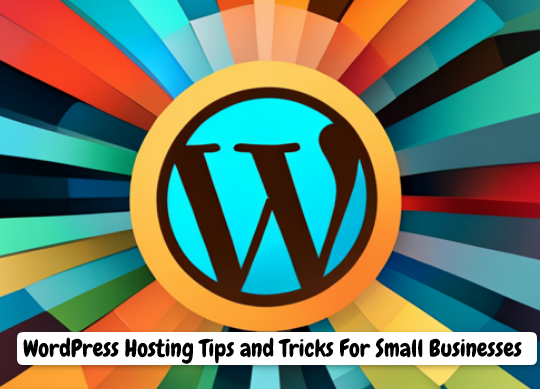Selecting the right web hosting provider for your WordPress site is a critical decision that can significantly impact your online success. As a small business owner, your website is a digital storefront, and its performance, security, and reliability are paramount. In this guide, we will delve into essential tips and tricks for choosing and optimizing WordPress hosting tailored to the needs of small businesses.
Understanding the Importance of Hosting
Hosting is the foundation of your website’s online presence. It determines how quickly your website loads, how secure it is, and how well it can handle traffic spikes. Making an informed hosting choice is crucial for delivering an exceptional user experience. Here are a few types of hosting:
Shared Hosting
Ideal for small businesses with limited budgets, shared hosting involves multiple websites sharing the same server resources. While cost-effective, it may lead to slower performance during traffic spikes.
Virtual Private Server (VPS) Hosting
VPS hosting offers a dedicated portion of a server, providing more resources and better performance than shared hosting. It’s a suitable upgrade for growing businesses.
Dedicated Hosting
With dedicated hosting, you have an entire server dedicated solely to your website. This offers maximum performance, customization, and control but is more expensive.
Managed WordPress Hosting
Tailored for WordPress, managed hosting providers handle technical aspects like updates, security, and backups. This allows you to focus on your business while enjoying optimized performance.
Read: How To Migrate Your WordPress Site To A New Host
Factors to Consider When Choosing a WordPress Hosting Provider
Here are some of the top factors to consider when selecting a WordPress hosting provider for your small business website.
Performance and Speed
Choose a hosting provider that offers solid server performance and fast loading times. Slow websites can lead to user frustration and increased bounce rates.
Related: Boosting Website Speed With WordPress Web Hosting In The UK And Other Techniques
Uptime and Reliability
Ensure your hosting provider guarantees high uptime percentages. Downtime can disrupt your business operations and affect your online reputation.
Scalability
Opt for a hosting solution that allows easy scalability as your business grows. The hosting environment should accommodate increased traffic and resource demands.
Security Measures
Security is paramount. Look for features like SSL certificates, firewalls, malware scanning, and regular security updates to protect your website and user data.
Related: Choosing The Right WordPress Security Plugins
Customer Support
Responsive customer support is essential, especially for small businesses with limited technical expertise. Choose a host that offers reliable and accessible support.
Cost-Effective Hosting Solutions
For small businesses, cost-effectiveness is key. Evaluate different hosting plans and providers to find the right balance between quality and affordability.
Optimizing WordPress Hosting
- Regularly update your WordPress core, themes, and plugins to ensure optimal performance and security.
- Compress and optimize images to reduce page load times without compromising quality.
- Implement caching solutions to store frequently accessed data, resulting in faster user load times.
- Back up your website’s data regularly to ensure you can quickly restore it in case of data loss or security breaches.
Conclusion
WordPress hosting is the backbone of your small business’s online presence. By understanding the various hosting options, considering crucial factors, and optimizing your website’s performance, you can create a robust online platform that elevates your brand, engages customers, and drives growth.

